How to Dog Sit For a Friend
Roy Roy • February 11, 2021
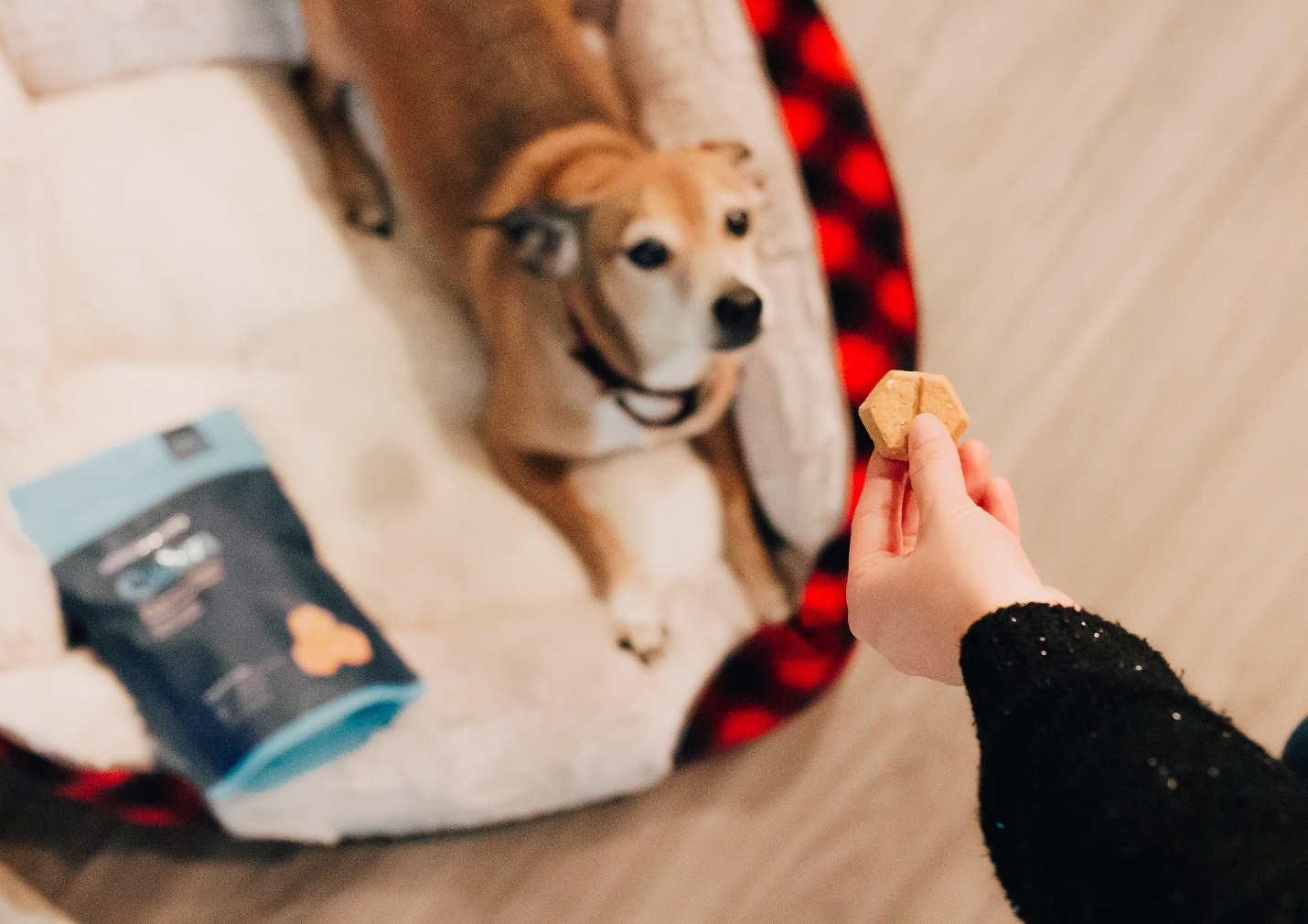
Who wouldn't enjoy loving, playing, snuggling, and cuddling with a flurry pup? Since it's the break season, your friend or other family members might knock on your door for their pet's sitting.
Your excitement is at its peak but wait! Do you even know how to take care of a pup? Remember, you can't experiment with new things because it's someone else's. Don't worry, we've got you covered. Check out some tips and tricks to dog sit for your loved one smoothly.
Know Whose Place to Dog Sit
Be straight forward and ask your friend whether it's her/his place or yours to dog sit. It will help you understand things realistically. If it's their home, you don't have to work upon setting a dog-friendly space because they have their own.
If it’s your home, then you have to think about puppy-proofing your house in the following ways:
Be straight forward and ask your friend whether it's her/his place or yours to dog sit. It will help you understand things realistically. If it's their home, you don't have to work upon setting a dog-friendly space because they have their own.
If it’s your home, then you have to think about puppy-proofing your house in the following ways:
- Buy a simple dog bed or a dog crate and keep it in a safe place.
- Keep dog bowls for feeding.
- Put simple dog toys in a box (a plush toy, a chew toy, and a squeaky toy)
- Stock up your kitchen with puppy food, biscuits, and dental chews
- Buy a brush or a comb appropriate for the pup's hair.
- Keep houseplants and electrical cords away from your dog's reach.
Learn about the Dog’s Nature and Schedule
Every dog’s nature varies. It’s a specific routine that most dogs are comfortable with and react to if things don't go in the usual order. Therefore, familiarize yourself with the dog's routine before dog sitting. Learn their food likes, dislikes, or any other allergic concerns. Doing so will make the dog comfortable and friendly with the new temporary owner.
Every dog’s nature varies. It’s a specific routine that most dogs are comfortable with and react to if things don't go in the usual order. Therefore, familiarize yourself with the dog's routine before dog sitting. Learn their food likes, dislikes, or any other allergic concerns. Doing so will make the dog comfortable and friendly with the new temporary owner.
Talk about Dog’s Dietary and Exercise Needs
Learn the quantity and the timings of the dog’s meals from your friend. You can also ask him about special dog treats or supplements. Next, talk about the dog’s exercise needs. Some young pups require multiple walks and playtimes a day, while older dogs require less playtime. Also, learn about the dog's favourite games and toys to delight them instantly.
Learn the quantity and the timings of the dog’s meals from your friend. You can also ask him about special dog treats or supplements. Next, talk about the dog’s exercise needs. Some young pups require multiple walks and playtimes a day, while older dogs require less playtime. Also, learn about the dog's favourite games and toys to delight them instantly.
Take Care of Your Pets for Fleas
If you already have a pet dog or cat at home, and you intend to bring another one, take special care and make arrangements to keep your pets safe from flea attack. Fleas cause skin allergic reactions, irritations and can transmit from one pet to another. Therefore, take your pets to the vet for complete preventive care from such parasites, alongside head to tail examination.
If you already have a pet dog or cat at home, and you intend to bring another one, take special care and make arrangements to keep your pets safe from flea attack. Fleas cause skin allergic reactions, irritations and can transmit from one pet to another. Therefore, take your pets to the vet for complete preventive care from such parasites, alongside head to tail examination.
Prepare for the Emergency Situations
Even in the best-going situations, an emergency happens. Playful, healthy furry partners can show signs of illness or laziness suddenly. If you notice any such signs, bring your pup immediately to London Ontario Animal Care Centre.
Even in the best-going situations, an emergency happens. Playful, healthy furry partners can show signs of illness or laziness suddenly. If you notice any such signs, bring your pup immediately to London Ontario Animal Care Centre.
At Staples Animal Hospital, we offer a wide range of animal services, such as animal's dental care, urgent care, and dog’s surgery. Get in touch with our professional technicians and compassionate staff at 519-472-9301 or info@staplesanimalhospital.com.

Did you know that many dogs have storm phobia? It makes them pace around, whine, become destructive, or pant during a thunderstorm. Usually, a great thunderstorm comes with a warning; therefore, you get some time to make sure your dog is comfortable. Keep in mind that if you’re unable to tackle these stressful situations on your own, then Staples vet is here to help you with it. With that said, here are a few expert tips to keep your dog calm during a storm. Don’t Leave Your Dog Alone Facing the storm alone can worsen your dog’s condition, which is why it is highly recommended that you stay with them. If you’re unable to be there for your dog, then ask someone to take care of them during this time. Just keep in mind that leaving them alone is not an option. Distract Your Dog Distractions are a great way to calm your dog. If they can play, then engage your dog in quick games. For instance, indoor fetch, high-value chew, and tug are good options. In case nothing works, then maybe gentle petting can do the trick for you. Use a White Noise Machine Music can serve as an essentially therapeutic technique to calm your dog. Using a white noise machine, you can play soothing music for the dog to relax them. This music can create a distraction for the dog to focus on things other than the storm. Our vet care in London, Ontario, recommends using a white noise machine to calm dogs when they are anxious. Moreover, you can always call Staples Animal Hospital to get quick information on using this machine for your dog when they are anxious. Close the Blinds Some dogs can become extremely anxious by looking at the flash of lighting. Closing the blinds will keep your dog from directly facing it. Furthermore, it will help eliminate some of the disturbing noise, ensuring that your dog feels safe. Contact a Veterinarian at the Staples Animal Hospital If you’re unable to calm your dog during their anxious phase, then our clinic is always open for your help. If you’re searching for the best vet clinic in London, Ontario, then Staples Animal Hospital won’t disappoint you. Our dedicated team is always ready to help our clients with emergency vet care in London, Ontario. Feel free to get in touch with us or visit the specialists at our clinic.
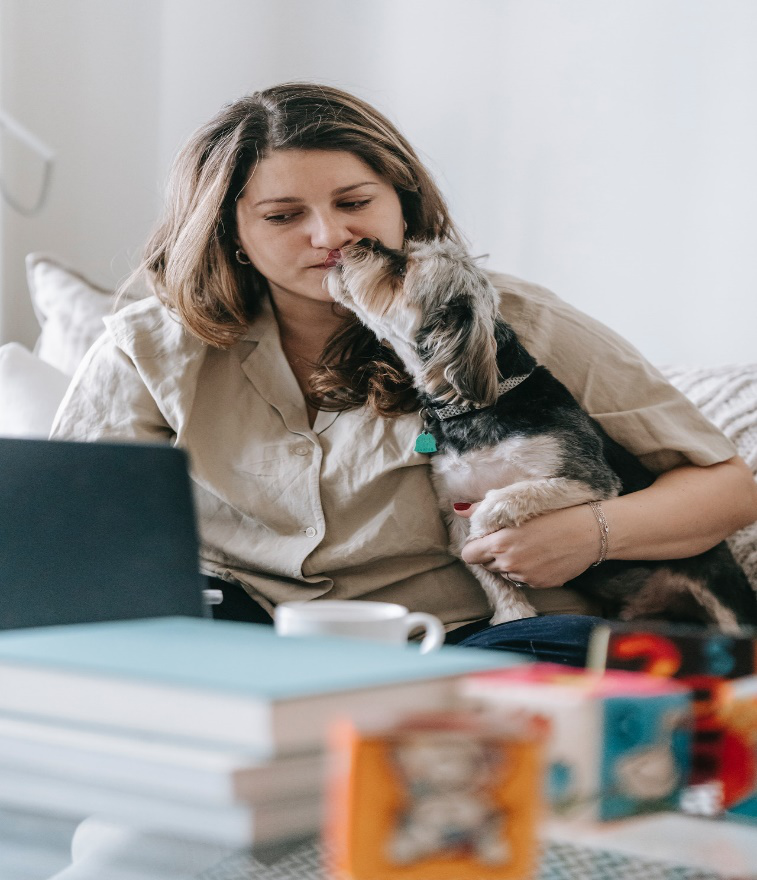
Surprisingly, a lot of people don’t know that, like cats, dogs lick their bodies to clean themselves. They do this for medical purposes and keep their skin healthy and free of irritants such as fleas or other parasites. Most dog owners know that having a dog means that you’re gonna get some slobber on you on a daily basis, but is it safe for your dog to lick your skin? The short answer is yes, but there are a few cautions. Risk of Bacteria Dogs carry bacteria in their mouths that can make humans sick. It includes the most common bacterium associated with gum disease and is responsible for 60 percent of all tooth decay in dogs and Mycoplasma canis. In addition, this pathogen causes chronic inflammation in the urinary tract. Risk of Viruses and Other Diseases Dogs can carry viruses that can make humans sick--the virus behind “Monkeypox,” for example, is carried by wild animals like rodents and dogs (but not monkeys) and can be transmitted to humans. Be sure your dog is up-to-date on all vaccines, including rabies shots. This disease is rare in dogs generally but not unheard of. If you’ve ever seen an animal bite another animal or heard about it happening to someone you know, then that’s a sign of a dog with rabies. Risk of Worms Dogs can pass along ringworm to humans; this typically presents itself as a red, itchy rash. Dogs and cats can also carry roundworms in their intestines. These worms are transmitted via contaminated soil, so you might want to avoid stepping on gardens where your pets regularly “go.” Many dogs may also be infected with tapeworms. It typically occurs when dogs eat rodents carrying the larval stage of this parasite. Other examples of parasites that dogs carry which can be passed on to humans include lungworms and hookworms. Dogs and other animals can pass intestinal parasites to humans, but this is uncommon in developed countries where people live primarily indoors and pets are routinely dewormed. Risk of Fungal Infection The most common fungal infection in dogs is caused by the yeast Candida albicans, and this fungus does not cause illness in animals. However, it can give humans a mild skin rash if they come into contact with the yeast. For further information about dogs, you can get in touch with us at Staples Animal Hospital. We are a vet care service based in London, Ontario. Contact us to know more about our vet care service.
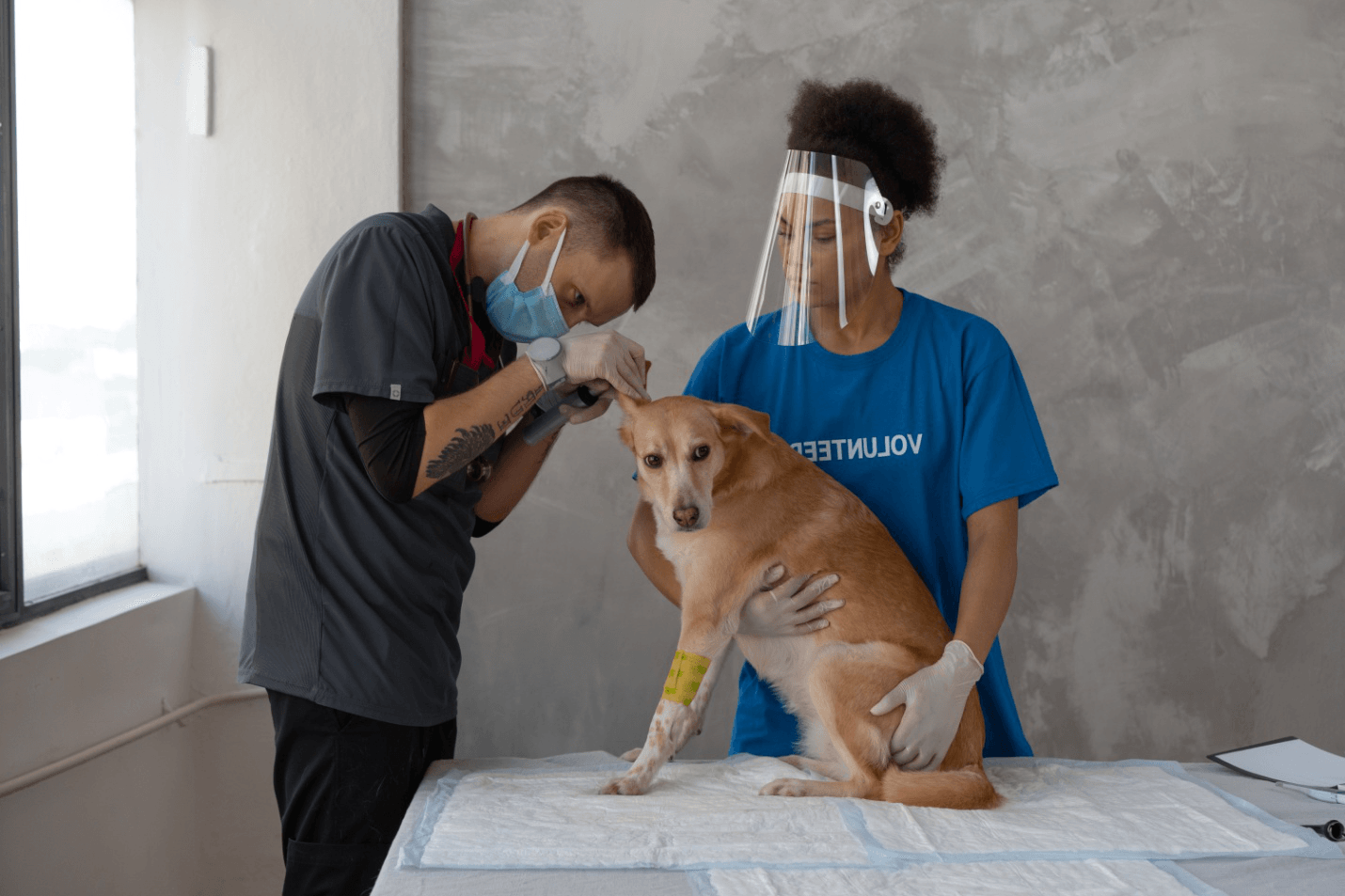
Having your pet undergo surgery can be a frightening experience for both the pet and the owner. After your four-legged buddy has been successfully operated on, the next stage is recovery. Depending on the severity of the operation, the recovery time might range from weeks to months. Let's check out some ways you can take care of your pet so that they can return to optimal health and begin enjoying life. 1.Keep Them Away from Other Pets After your pet's surgery, ensure a safe space for them. It's vital to give them space; even if you believe the anaesthetic has worn off, your pet may still be affected by the after-effects. The anaesthesia's after-effects make it difficult for your pet to move around. This temporary isolation of your pet is not only for their comfort after surgery but also for the protection of other animals and your children. 2.Keep Them Hydrated After surgery, staying hydrated is critical, especially for your pet. They'll require more fluids than usual. When feeding your pet, just give them smaller quantities of food, such as boiled chicken. Another reason for the tiny meals is that your animal may become nauseated, increasing the chances of vomiting. With all of these liquids in their system, you should give your pet some time outside as well. 3.Don't Allow Licking You must ensure that your pet does not lick the incision following their operation. Separating your pet from other pets is also important to ensure that other pets don't contaminate the wound. Just a reminder: it only takes a few minutes for a pet to bite out the sutures, so keep a watch on them at all times. Entrust Your Pet's Care to the Experts at Staples Animal Hospital! Our veterinary specialists at Staples Animal Hospital work hard to give your pet the best veterinary care possible. We believe that the greatest care for your pet should be delivered by veterinary experts who are competent, caring, and well-informed. We offer vet care services in London, Ontario, and we're always eager to accept your pet as a new patient! Call us at 519-472-9301 now!
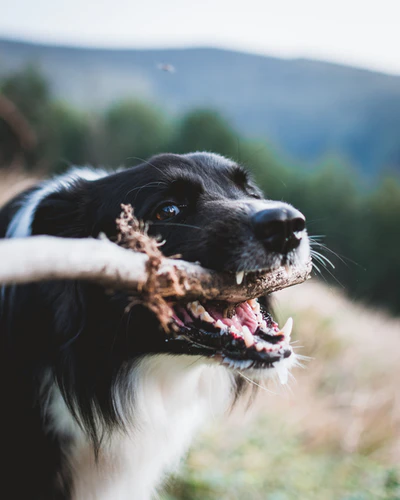
All of us provide extra care and attention to the elders in our life. Similarly, like any other living being, aging is a natural process for dogs, and older dogs have their own set of care requirements. With aging comes less mobility, poor sight, and hearing ability. Even the immune system is at its worst, meaning diseases are caught easily. However, dogs can still live their last years happy and healthy with the help of proper vet care. It is important to identify whether your dog has reached seniority since all dogs age differently. If you notice any signs of aging in your dog, then take your pet to a dog hospital for further examination. To help keep your dog healthy and happy, we’ve made this guide on senior dog care. Better Food Choices Although taking care of your dog’s diet is an important aspect throughout their life, taking care of their needs when they become senior is crucial. The dog owner has to take care of three factors: The decrease in physical activity of the dog. Lower rate of metabolism. Excessive calorie intake. Senior dogs require 20% fewer out of the total calories consumed by a middle-aged dog. At times, the need for another food source increases because of digestive problems. Hence, alternative food products must be given for proper intake. Senior dogs tend to become obese as they gain weight due to more consumption and less activity. There is a constant risk of dangerous diseases. For instance, it will take more time for an obese dog to control their blood glucose concentration. This will disrupt their carbohydrate metabolism, leading to diabetes. Regular Exercise and Visits to the Vet Regular exercise will prevent your dog from becoming obese and help it maintain a healthy weight. It is recommended to visit the best vet clinic for consultation regarding exercise programs that are suitable for your dog, concerning their health and limitations. Slowly build your dog’s stamina since the energy levels of a senior dog are low. They can’t quickly move in action. Invest in vet care services which can help boost your dog’s immune system and build tolerance against diseases through a veterinary practice. Make sure to treat your senior dog correctly right from the start to avoid any complications later. We take special care of senior pet wellness and even offer end of life services to provide proper and effective vet care. Contact us at 519-472-9301 or email us at info@staplesanimalhospital.com for further information.
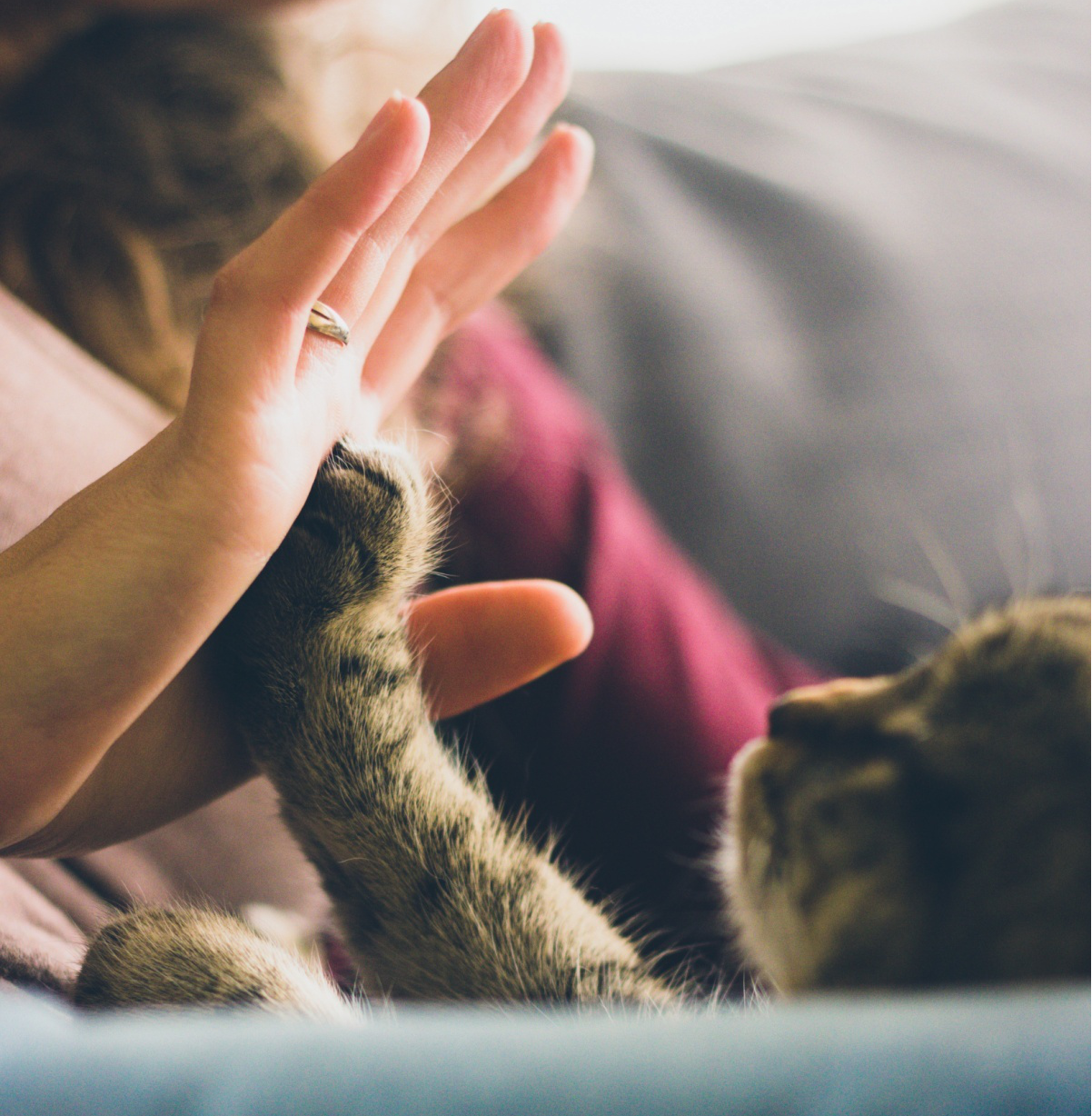
Did you recently become a cat owner? Congratulations! Cats make great companions and can be a source of joy in one's life. To help you get started, we're listing down some things you need to know about owning a cat. 1. Secure Environment Generally, cats don't like change, so try to make your home as welcoming as possible. You can give your cat a secluded area, put a comfy bed for her to snuggle in, and arrange for an enclosed bed to sleep in if she feels overwhelmed. Moreover, you can also install calming diffusers to help your cat feel calm and safe. 2. Introduce Your Cat To Other Pets If you have other pets, introduce your cat to them gradually. While feeding them, swap their crates, so they can get used to each other's smells and become comfortable with each other. 3. Cat Scratchers Scratching can signify that cats are either happy or trying to de-stress. If you have a cat and don't have cat scratchers, it's better to get them now and put them in a horizontal or vertical position. 4. Play With Your Cat Playing with your cat can help in developing her brain. Development of the brain will lead to having good socialization skills. Playing and spending time with your cat would encourage her to grow quickly and will increase patience in her behavior. 5. An Appropriate Litter Box The most feasible option for kitty litter is to use clay litter. The clay makes it easier to pick feces and clean the urine as the clay litter clumps around them. The litter needs to be 2–3 inches deep to cover the total waste of the cat. 6. Groom Your Cat Cats leave behind fur. So grooming is an essential part of owning a cat. Invest in grooming techniques and tools because you'll find yourself using them every two weeks. 7. Visit a Vet To keep your cat healthy, find an expert veterinarian, schedule a check-up, and make sure your cat's vaccines are up-to-date. At Staples Animal Health, we offer a wide range of pet services. Our affordable services are available to all customers in London, Ontario. Visit our clinic or schedule an appointment with us today.
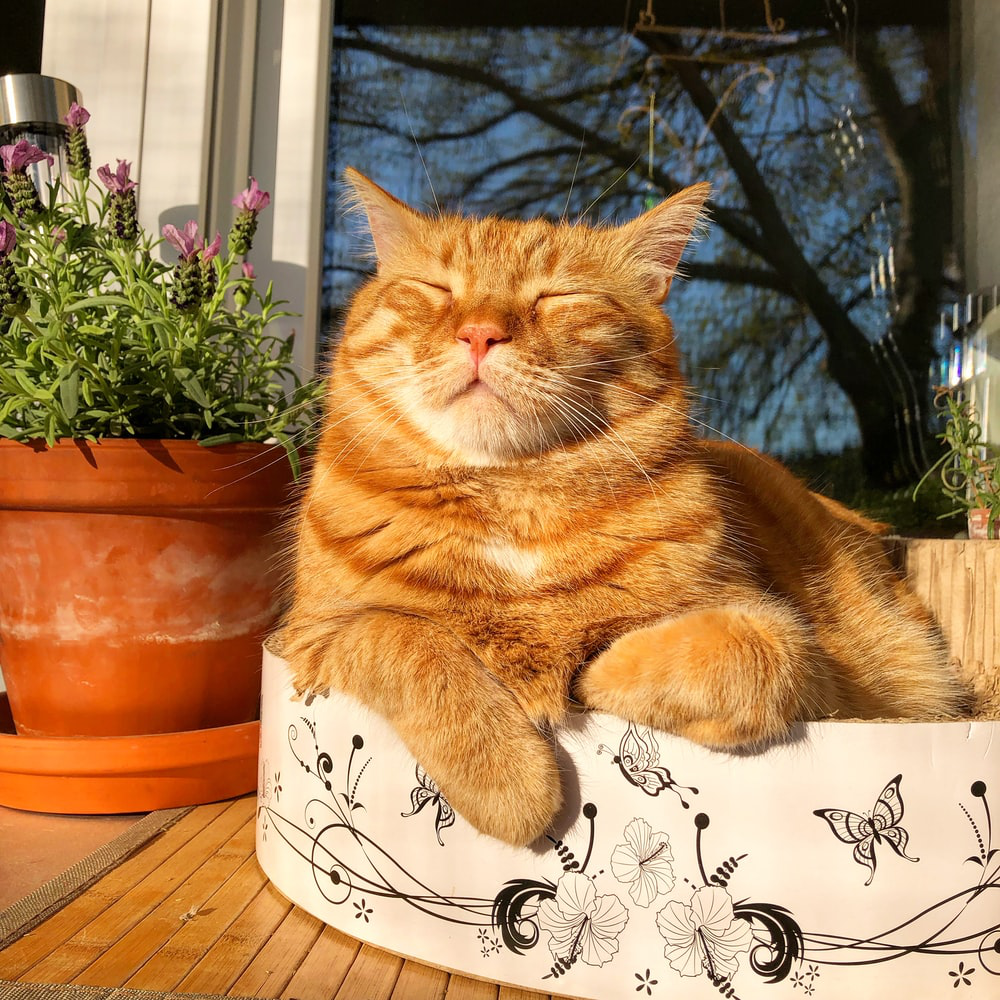
You may not know it, but your cat lives a secret double life that you have no idea about. As a cat owner, it may be nerve-wracking to think of the different kinds of interactions your cat may be having without you being there to protect it. However, vaccinating your cat can protect them from catching many of the infectious diseases stray cats may be carrying. Therefore, you should get your cat vaccinated as early as possible, ideally even before you let them go outside. Young kittens are protected from external infectious diseases because of their mother's milk, but this protection is short-lived. And so, you can start vaccinating a kitten once it has reached eight weeks of age. There are plenty of infections and diseases you can vaccinate your cat against, but here are the ones our vets advise prioritizing: Feline Infectious Enteritis: This vaccination is essential for every cat since it keeps them safe against this infection that can prove to be fatal. This infection is caused by the feline parvovirus and is spread when your cat has direct oral contact with fecal matter. The parvovirus can last for long periods with a severe impact on your cat. Feline infectious enteritis damages the cells in the gut and bone marrow, resisting various disinfectants and causing your cat's immunity to be weakened. Moreover, it can result in diarrhea, lethargy, dehydration and leave your cat exposed to other infections. With young kittens, it can even be fatal. Cat Flu: Another disease common in many felines is cat flu. While cat flu can also be fatal, it can be prevented through vaccination. Cat flu is primarily caused by two viruses, the feline calicivirus (FCV) and the feline herpesvirus (FHV-1). FCV impacts the upper respiratory tract and has symptoms similar to the human flu. While cat flu can also be managed with proper care, it's best to vaccinate your cat against it to prevent other issues that can stem from occasional flare-ups. Feline Leukemia Virus (FelV) Feline leukemia virus is a virus that gets transmitted to different cats through bites or saliva. This retrovirus attacks the bone marrow, leading to suppressed immunity and leukemia. As a result, any contact with other cats can leave your pet at risk of contracting various diseases. With various fatal infections to protect your cat against, routine vaccines can help keep them safe and give you peace of mind. Visit Staples Animal Hospital today to speak to a cat neuter specialist in London, ON. Get in touch on our website for more information.
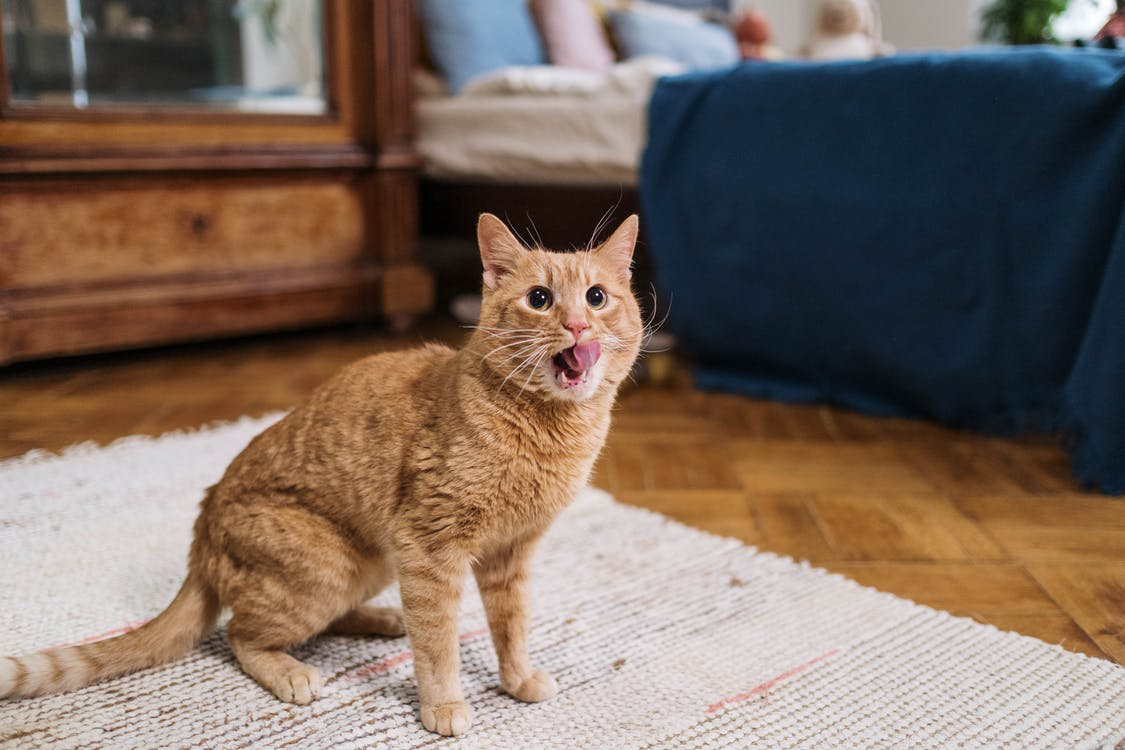
It can be quite exciting to add a kitten to your family; however, it’s certainly a big responsibility. Getting your kitten vaccinated is essential to help it live a happy and healthy life. Here are a few important things that you need to know. When Do I Vaccinate My Kittens? Vaccinations are critical for kittens. Some diseases and infections can be fatal, and vaccinations can help prevent them, protecting your kitten. The vaccination process starts when your kitten is at the age of 6 to 8 weeks, and they’re repeated every 3 to weeks until your kitten is at least four months old. Kinds Of Vaccinations 1.Core Vaccinations Core vaccinations are routine ones that help protect your kitten from various common diseases like: Rabies: A fatal disease with no treatment available. Prevention is important. Feline distemper: A severe contagious disease that occurs in kittens and can result in death. Feline Herpesvirus: A contagious upper respiratory condition. Calicivirus: A contagious upper respiratory condition that can lead to joint pain, oral ulcers, fever, and anorexia. Feline Leukemia Virus: Can be transmitted via cat to cat and can cause cancer Bordetella: Another contagious upper respiratory condition. 2.Non-Core Vaccinations These are not injected in every kitten but depend on the lifestyle of the cats. When your kitten lives outdoors, it’s at a greater risk of contracting diseases. The vaccination for Chlamydophila is administered to cats if the disease is prevalent in a certain area. Feline Leukemia Virus’s vaccine may also be administered if your kitten tends to roam around outside. Why Do I Have To Get My Kitten Vaccinated More Than Once? When your kitten is born, it can receive a temporary form of immunity from the colostrum, that is, the milk produced by the mother cat right after birth. It is full of antibodies and can protect the kitten for a few weeks, acting as passive immunity. However, the kitten can still contract certain diseases and is administered vaccines to keep it safe via active immunity. Series Of Vaccinations It’s not easy to know when to vaccinate a kitten, so a series of vaccinations are conducted by a professional veterinarian. The kitten is supposed to receive at least two vaccinations between the time period it is about to lose the temporary immunity. In addition to that, multiple injections are given to ensure the effectiveness and to keep the cat’s immunity, it has to be given vaccine boosters every 1 to 3 years. You can get your kitten vaccinated from our clinic, which is a CVO-accredited veterinary practice in London, Ontario. We also offer routine check-ups, dental care, and surgeries for pets with guidance for pet care as well. You can contact us for any emergency vet care as well.
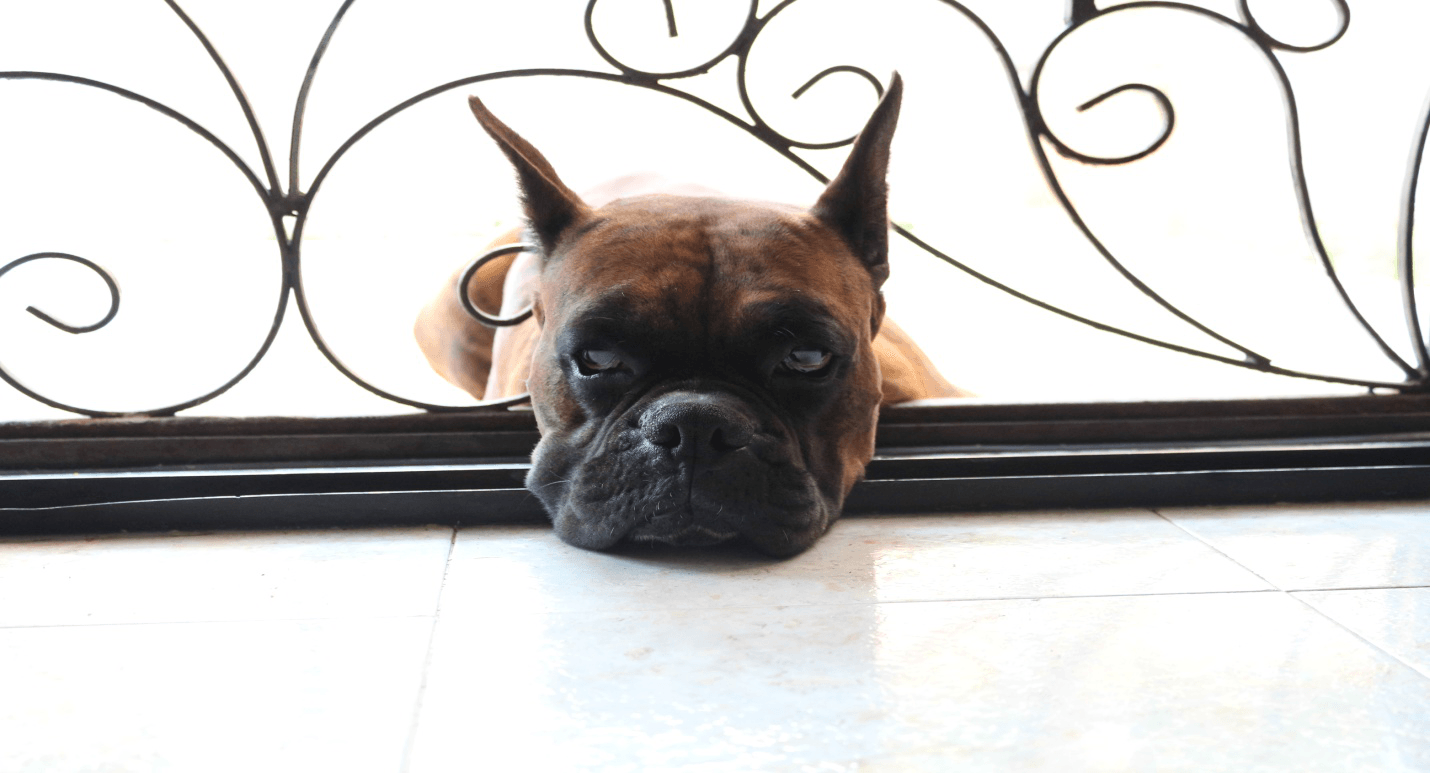
You know what they say—a dog is a man's best friend. Imagine now that your best buddy is suffering from anxiety, wouldn’t you want to help them out and make it easy for them? This rule applies as much to your furry friends as it does to your regular ones, especially because they can't talk to you about what's bothering them. While it can be harder to imagine animals suffering from conditions like anxiety, it doesn’t make it any less true. According to a study carried out in Finland, if your dog has undergone trauma or separation, or has to cope with external changes around it, it may cause them anxiety. The study concluded that anxiety was prevalent among canines and the most common type of anxiety was noise sensitivity, with 39% of the surveyed dogs exhibiting signs of this. Additionally, more than 10% of dogs showed fear when exposed to new situations. Your canine friend may display the following signs if they’re anxious: Constant pacing: While dogs are easily excitable creatures, constant pacing for no apparent reason may indicate anxiety. Observe if the dog is making a habit of this without an apparent reason. Chewing away at everything in sight or excessive licking causing self-harm: Again it's pretty standard for canines to chew, gnaw, and lick things. However, if this happens excessively, so much so that the dog starts harming itself, i.e., breaking a tooth or damaging furniture or doors, it’s a clear sign of anxious behavior. Escaping to the yard: Canines love to go outside and play but constantly rushing out into the yard may indicate a tendency to escape, which is a common sign of anxiety. Cowering or hiding under/behind objects: Anxiety is a modified form of fear. If you find your dog under the table or cowering and shying away from everything unnecessarily, it may be under the stress of a fearful situation. Excessively urinating Urinating excessively when the owner is around the house is another common feature of an anxious dog. While it's common for dogs to urinate when away from their guardians, it may reflect your pet's anxiety if this frequently happens in your presence. If you find your cuddly canine showing these signs, try to bond with it and give it time. One way is to cuddle with it if you notice it being upset. If your efforts fail to get your dog back to normal, you should consider seeking professional veterinary help. Our hospital provides various services and animal care in London, Ontario for your prized pets to help strengthen your bond.

Don’t Limit Outsides Letting the dogs have a little fun or do their business outside isn't entirely off-limits but, to avoid injury, ensure your yard is clear of debris. Run hoses or add planks as tangible lines that lead to their favorite spots and allow them to strategize finding their way back to the doors. It's important to understand that sometimes these conditions can be quite painful for our loyal companions. If you foresee any of these symptoms, it's recommended to immediately make an appointment with renowned animal care centres, such as Staples Animal Hospital. Our licensed vets are trained to assist you with all adjustments needed while managing your pup's overall eye health. Reach out to us at 519-472-9301 or info@staplesanimalhospital.com for a wide range of services, including dog surgery, complete preventative care, spay and neuter services, digital radiography, laboratory tests, and more in London, Ontario.
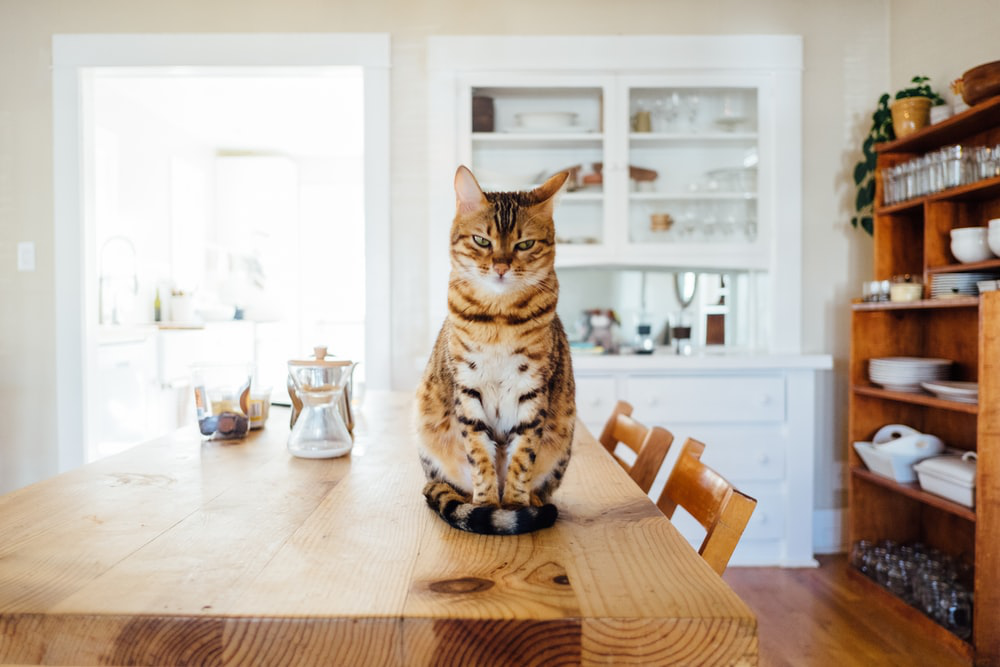
House plants are a way of bringing a bit of greenery and zen into your indoor space. Medical experts say having indoor plants can boost your mood, productivity and creativity. The sight of the green and leafy plants can also reduce stress and fatigue. However, house plants might not have the same effect on your feline. As much as cats love herbs, sadly, many common house plants are toxic to cats. Cats love nibbling on the leaves, and sometimes their intuition might fail them, leaving them to become prey to your house plant's venom. Here are some common indoor plants you shouldn't get if you have a cat at home: Aloe Vera This may come as a surprise to many, but the ever soothing and skin refreshing aloe Vera isn't suitable for your feline. Digestion of aloe can lead to vomiting, diarrhea, change in urine colours and tremors in your beloved cat. However, aloe gel is considered edible. Your dog or cat can be fed aloe gel without facing any medical complications. Lilies As beautiful and attractive lilies are, if you have a cat at home that you dearly love, it's better to keep the flowers miles away. Ingesting lilies can lead to kidney failure in felines. Most lilies, including Asian lilies, Easter lilies, Tiger lilies, and Stargazer lilies, are toxic to cats. Hence, you should keep all types of lilies away from your furry friend. Monstera The "Swiss Cheese Plant" is the new trend in town. MonsteraDeliciosa is quickly becoming a delicious staple in Canadian homes with its unique holes and attractive features. However, the reality can be bitter for your cats. Be wary before you welcome a Monstera into your home with a cat. These plants can cause intense suffering to your furry friend, including throat pain, drooling, sore mouth, and difficulty swallowing. Tulips The striking colours of tulips are sufficient to light up your home. However, being a cat owner, you ought to be wary of the dangers the flowers pose for your furball. Tulips can cause nausea, oral irritation and drool in cats. And if your feline ingests the bud, their life may get in danger. Bring your furry friend to our clinic Cats are intuitive who usually know which substances to avoid. However, routine checkups can go a long way in ensuring your furball remains safe and healthy. At Staples Animal Hospital, we provide world-class vet care services for your pets in a state-of-the-art environment. For more information regarding our services, connect with us today.
